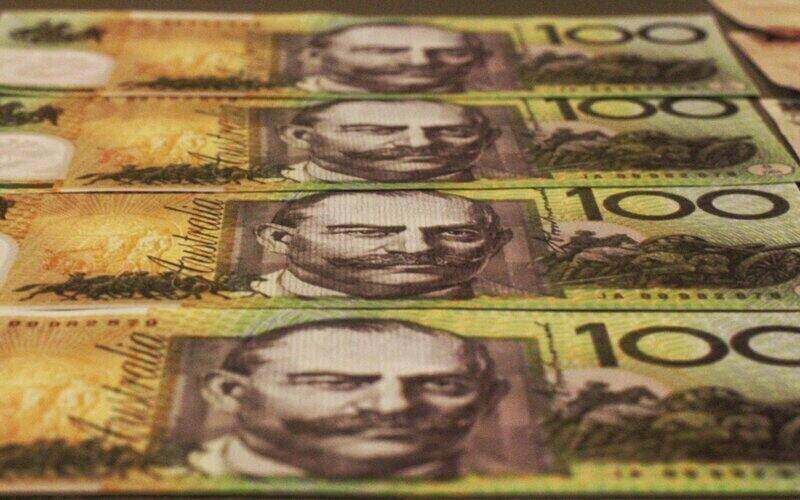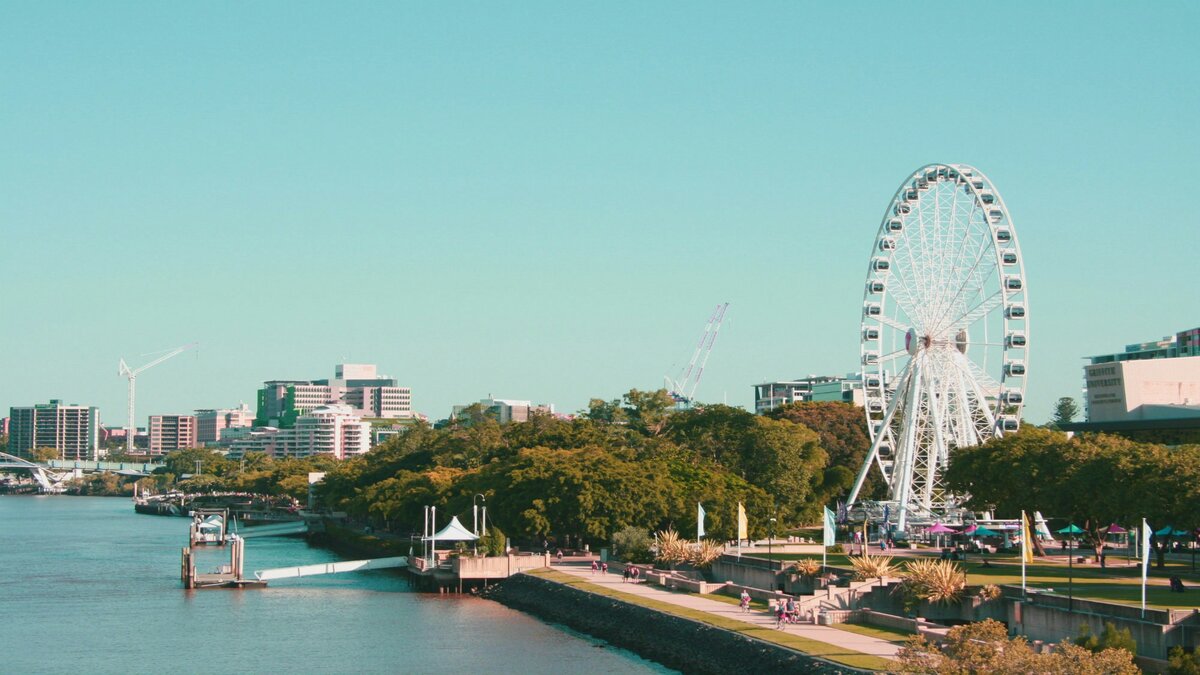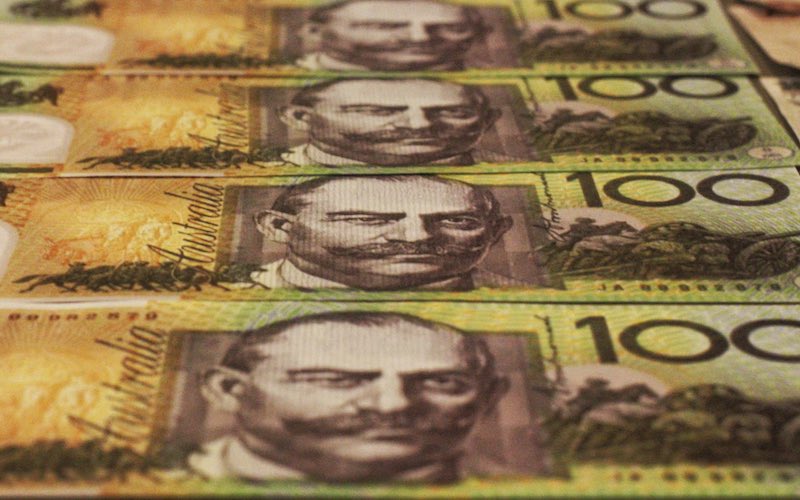We all know we aren’t supposed to treat wealth and money like a competition, but if there was a list on the internet somewhere with every Australian’s net worth, would you honestly not be looking up your friends? No such database exists (at the time of writing) but you can compare your own wealth to the Australian average.
Net worth and household wealth
The ABS says ‘wealth’ refers to the balance of assets and liabilities held by members of a household. Net worth is how much money you would have after cashing in all of your assets and paying off all of your debts
To work out your own net worth, you just need to sum up the value of all the assets you own (property, superannuation, cars, shares, etc.) and then subtract your outstanding debts (home loan, car loans, credit cards etc.)
Household wealth in Australia
The average Australian adult was worth about $770k at the end of the June ‘24 quarter per the ABS.
That number comes from dividing total household wealth (roughly $16.48 trillion) by the voting age population (about 21.4 million).
That $16.48 trillion was made up of about $19.6 trillion in assets, subtracted by just over $3.1 trillion in liabilities. The majority of holdings were in property, with the value of land and dwellings owned nearly $11 trillion - about 56% of the total assets. That works out to be roughly $524,000 per person..
Wealth in Australia
| Total Value (June '24) | Per Adult | |
|---|---|---|
| Land and dwellings | $11.216 trillion | $524,000 |
| Other non financial assets | $846 billion | $40,000 |
| Superannuation reserves | $3.936 trillion | $184,000 |
| Shares and other equity | $1.483 trillion | $69,000 |
| Currency and deposits | $1.718 trillion | $80,000 |
| Other financial assets | $434 billion | $21,000 |
| Total assets | $19.633 trillion | $917,000 |
| Loans | $2.974 trillion | $139,000 |
| Other liabilities | $182 billion | $9,000 |
| Total liabilities | $3.156 trillion | $147,000 |
| Australian household wealth (Assets-Liabilities) | $16.477 trillion | $770,000 |
Source: ABS
How many millionaires in Australia?
Of course, Australian household wealth isn’t exactly spread out evenly. The further you zoom in on the very top end, the more you see just how unevenly that $16.48 trillion is distributed.
| Minimum net worth in AUD* | Number of Aussies | Source |
|---|---|---|
| $1.66 million | Around 1.9 million as of 2023 | UBS Global Wealth Report 2024 |
| $16.6 million | 42,789 | Knight Frank Wealth Report 2025 |
| $1 billion | 46 | Forbes 2025 Rich list |
| $29.3 billion | 1 | Forbes 2025 Rich List |
*At exchange rates as of April 8 2025
Meanwhile, the last Survey of Income and Housing from the ABS (covering 2019-20) found the bottom quintile of all Aussies held just 0.7% of the wealth. If we apply this to the latest household wealth figure, that means the bottom 20% of the Australian population has a combined net worth of about $115 billion. That’s less than the combined net worth of the eight richest individuals in Australia according to the Forbes rich list
Net worth in Australia by age
As you might expect, the numbers suggest wealth is concentrated among older Australians. According to the Australian Institute of Health and Welfare, households with at least one member over 65 had an average net worth 1.5 times greater than younger households in 2017/2018. Over half (57%) of this difference was due to home ownership: older people owned property valued at an average of $597,000 compared to $328,000 for Aussies under 65.
In 2025, the Grattan Institute released data that also demonstrated the extent of wealth inequality between young and old Australians. It found the median net worth of households with inhabitants aged between 25 and 40 was $238,000, while for households between 41 and 64 that number leaps up to $809,000, or $817,000 for people over 65.
| Age of household members | Minimum Net Worth (Top 75%) | Median Net Worth | Minimum Net Worth (Top 25%) | Minimum Net Worth (Top 1%) |
|---|---|---|---|---|
| 25–40 | $78,000 | $238,000 | $554,000 | $3,091,000 |
| 41–64 | $332,000 | $809,000 | $1,495,000 | $7,710,000 |
| 65+ | $433,000 | $817,000 | $1,552,000 | $10,939,000 |
Source: Grattan Institute. Note this figures are not equivalised for the number of household members
Average Australian net worth through the years
The combined net worth of all Australians was $1.299 trillion in March 1989. Adjusted for inflation, that’s equivalent to around $3.26 trillion in today’s money per the RBA’s inflation calculator. That means in real terms, the current net worth of Australian households is 380% higher than in 1989, despite the adult population only being 70.5% higher at just over 12.25 million.
Net worth per adult in 1989 was $106,007, or $266,228 adjusted for inflation.
How rich is Australia compared to the world?
It’s easy to say that we’re a wealthy bunch, but the real test is how we compare to other regions around the world.
According to the UBS 2024 Global Wealth Report , in 2023, mean wealth per adult in Australia was USD$546k. That put Australia fifth, behind Switzerland, Luxembourg, Hong Kong and the United States.
For the stats nerds, median is probably a more relevant metric than mean wealth. Mean wealth tends to be blown out by the billionaires at the extreme end of the scale. In the US for example, mean wealth per adult was USD$564k, while median wealth was just $112,000.
Per Forbes, there were about 835 billionaires in the US at the time - Snopes estimates these individuals owned more wealth than the bottom 50% of US households.
While there are still big imbalances down under, wealth in Australia seems to be more evenly distributed than most of the other richest nations. In 2023, median wealth per adult in Australia was just under $262,000 US. That works out to be about $394,000 AUD (based on 2023 exchange rates), which is up about 10% from 2022. Only Luxembourg, with a population of well under one million, boasts a stronger median.
| Rank | Region | Median worth per adult in 2023 (USD, rounded to nearest '000) |
|---|---|---|
| 1st | Luxembourg | $372k |
| 2nd | Australia | $262k |
| 3rd | Belgium | $256k |
| 4th | Hong Kong | $207k |
| 5th | New Zealand | $203k |
| 6th | Denmark | $194k |
| 7th | Switzerland | $171k |
| 8th | United Kingdom | $163k |
| 9th | Norway | $152k |
| 10th | Canada | $143k |
Source: UBS Global Wealth Report 2024
If you’ve crunched the numbers and found your wealth is below the national average or median, you’re probably still not doing too badly on a global scale. The UBS report found 82.3% of the global population has a net worth of less than USD$100k. Nearly 40% of adults have less than USD$10k to their name, something to bear in mind the next time you’re envious of the size of your neighbour's garden.
Savings.com.au’s two cents
If for example, you’re struggling with your mortgage, you’ll probably find someone telling you 'wealth won’t make you happy' extremely inane and irritating. When more money means stability, security, even food and shelter, it probably would improve your mood.
However, it can also clearly make you unhappy. If money is a goal for you rather than a means to an end, it seems pretty inevitable you will end up jealous of people with more of it.
One last thing to think about. Last year, Gina Rinehart was embroiled in a legal case against her two eldest children, who argued she took inheritance money they were entitled to. Would you swap your relationship with your parents/children for her $30 billion fortune?
Actually maybe don’t answer that.
Advertisement
Need somewhere to store cash and earn interest? The table below features savings accounts with some of the highest interest rates on the market.

- Bonus variable rate for the first 4 months on balances up to $250k and high variable ongoing rates.
- No fees and no monthly requirements to earn interest.
- Easily open an account online in 3 minutes.
First published on April 2024
Image by Joshua Hoehne on Unsplash








 Denise Raward
Denise Raward
 Harry O'Sullivan
Harry O'Sullivan


 Harrison Astbury
Harrison Astbury

